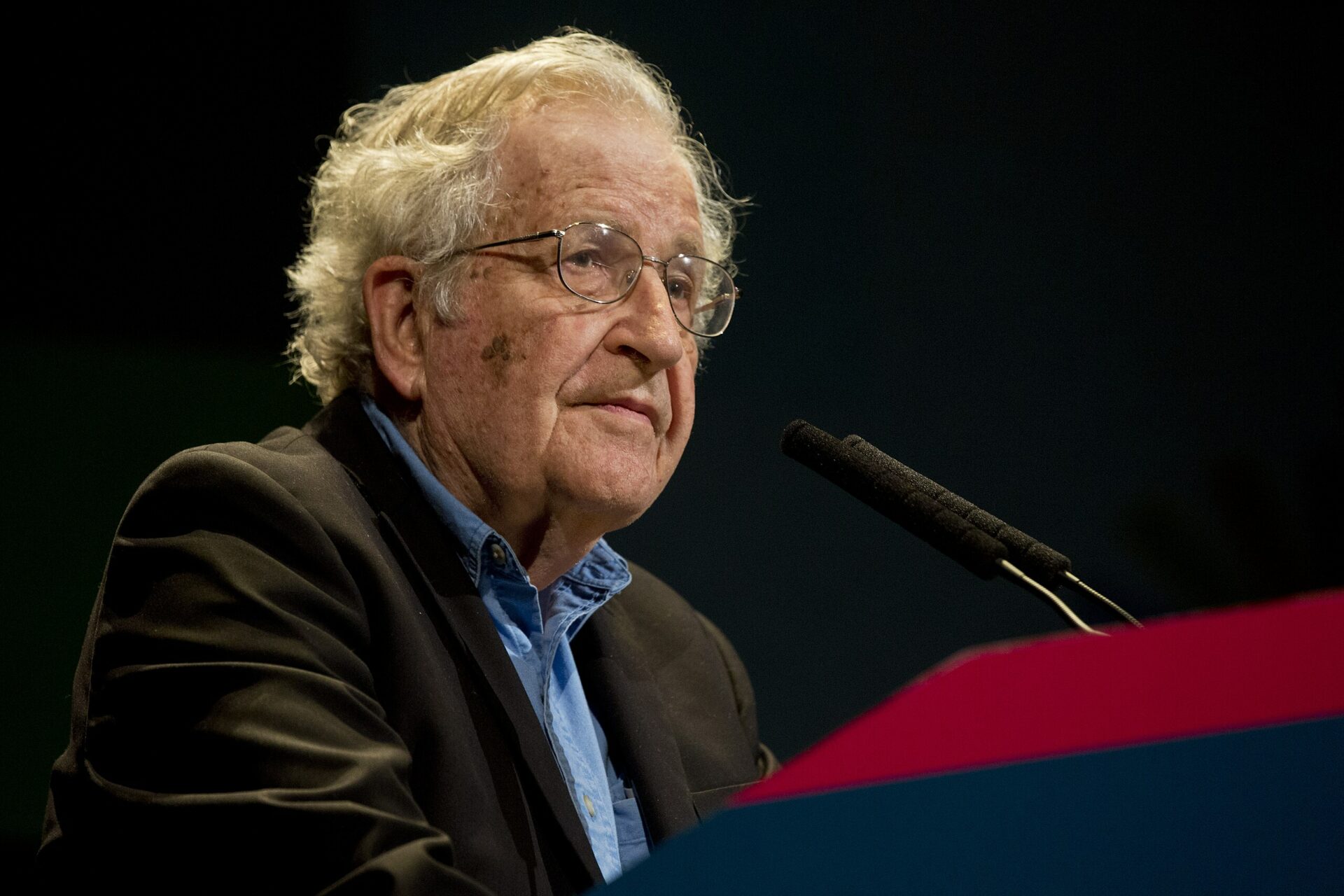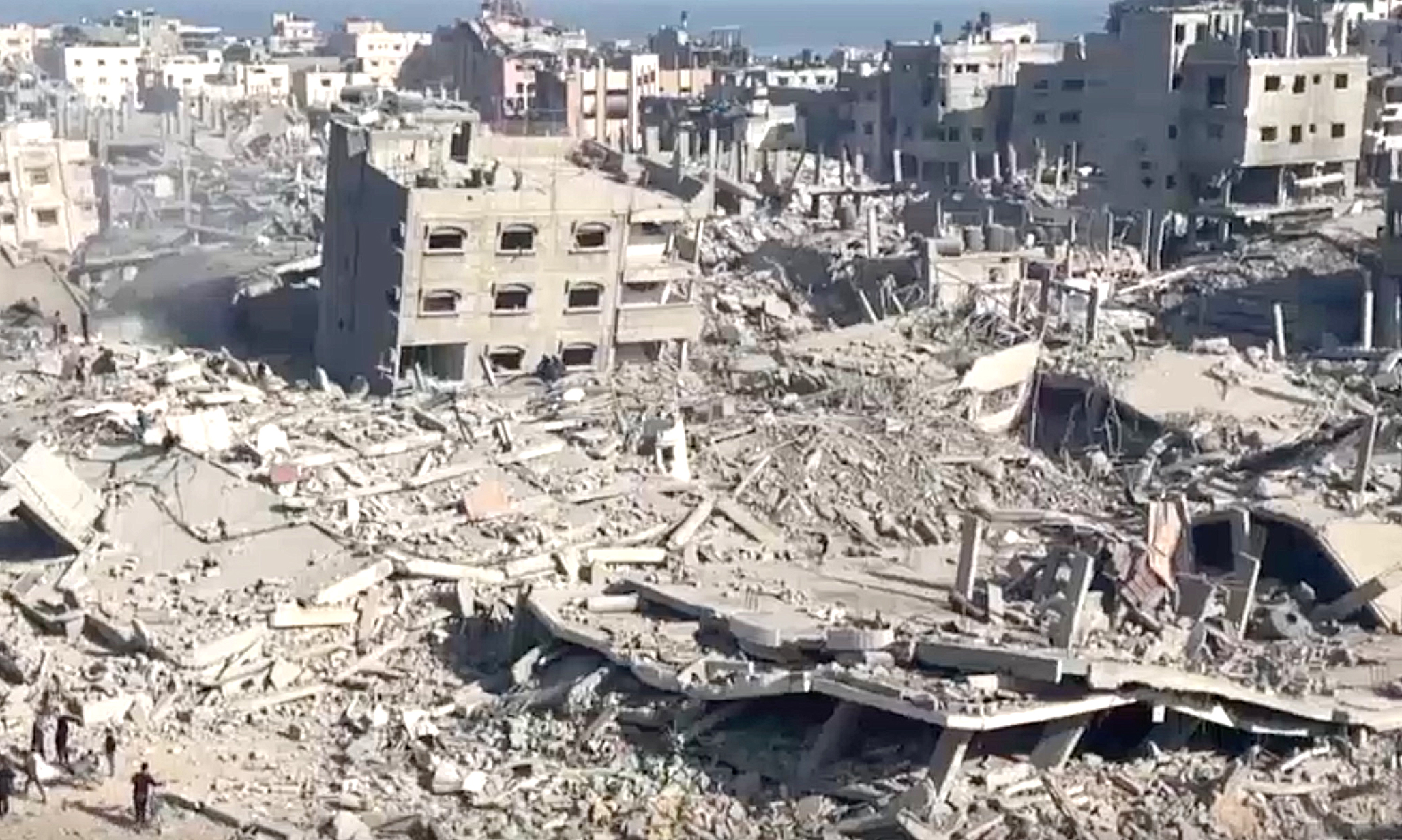



Noam Chomsky, at 95 years old and recovering from a stroke, currently resides in Brazil, where he recently received a visit from Brazilian President Lula on July 2, 2024. In a recent interview, Chomsky identifies nuclear war and the climate crisis as the most significant risks facing humanity today [11305d79]. He notes that global temperatures have exceeded 1.5°C for the first time between February 2023 and January 2024, marking a critical failure of the Paris Agreement, which aimed to limit warming [11305d79]. The European Union has also faced economic challenges, with industrial production declining by 3.9% over the past year, further complicating the response to climate change [11305d79].
Chomsky discusses the ongoing Ukraine war and its implications for global power dynamics, suggesting that it has pushed the EU further under U.S. control. Meanwhile, BRICS nations are advocating for a multipolar world to counterbalance U.S. dominance, which sees American multinationals controlling approximately 50% of global wealth [11305d79]. The recent suspension of the last arms control treaty, new START, by Russia adds to the urgency of addressing nuclear threats [11305d79].
In light of these crises, Chomsky emphasizes the need for grassroots activism as a driving force for change. He argues that without significant public mobilization, the prospects for addressing climate change and nuclear risks remain bleak [11305d79]. This call to action aligns with his broader critique of global leadership, which he believes often prioritizes profits and geopolitical interests over the pressing issues of climate and security.
The world is currently grappling with numerous conflicts, global events, and climate risks that have far-reaching consequences. The Israel-Hamas war continues to escalate, with Israeli strikes devastating Gaza City, while hospitals are caught in the crossfire [84251b68]. The United States and China are engaged in high-level discussions that could significantly impact the global economy [84251b68]. In Mayotte, a severe water crisis is unfolding due to drought and mismanagement, highlighting the urgent need for effective resource management [84251b68].
Latvia's president has warned of the long-term implications of Russia's war in Ukraine, emphasizing the ongoing instability in the region [84251b68]. In the U.S., efforts to avoid a government shutdown are underway, with House Speaker proposing an extension of government funding [84251b68]. In Darfur, paramilitary forces and Arab militias have been implicated in the deaths of over 800 people, showcasing the violence and instability in the region [84251b68].
Migration has emerged as a central issue in the Netherlands' election campaign, reflecting the challenges surrounding immigration policies [84251b68]. In South Africa, thousands of children face long walks to school, underscoring educational disparities [84251b68]. Meanwhile, millions of Indians celebrate Diwali amidst rising concerns about air pollution [84251b68]. These events illustrate the complex web of challenges the world is currently facing.
Chomsky's warnings about the interconnectedness of war, climate change, and economic inequality resonate with the broader narrative of global instability. The impacts of conflicts and climate risks on vulnerable populations, particularly children, are significant and multifaceted. A recent discussion paper titled 'Climate Insecurity Impacts on Children and Armed Conflict' explores these linkages, emphasizing the increasing frequency and severity of weather-related events exacerbated by global temperature rise [bfe1947b].
The urgency of addressing climate change and its impacts is further underscored by the recent findings that the first 120 days of the Israel-Gaza conflict emitted between 420,265 and 652,552 tonnes of carbon dioxide equivalent, surpassing the annual emissions of 26 individual countries [855cf967]. Chomsky's call for action, combined with the ongoing crises around the world, highlights the critical need for a unified response to these pressing issues [11305d79].